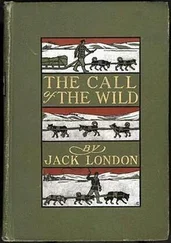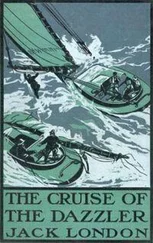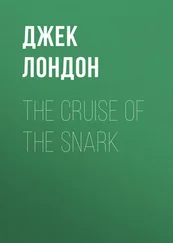Jack London - The Cruise of the Snark
Здесь есть возможность читать онлайн «Jack London - The Cruise of the Snark» весь текст электронной книги совершенно бесплатно (целиком полную версию без сокращений). В некоторых случаях можно слушать аудио, скачать через торрент в формате fb2 и присутствует краткое содержание. Жанр: Классическая проза, Морские приключения, на английском языке. Описание произведения, (предисловие) а так же отзывы посетителей доступны на портале библиотеки ЛибКат.
- Название:The Cruise of the Snark
- Автор:
- Жанр:
- Год:неизвестен
- ISBN:нет данных
- Рейтинг книги:3 / 5. Голосов: 1
-
Избранное:Добавить в избранное
- Отзывы:
-
Ваша оценка:
- 60
- 1
- 2
- 3
- 4
- 5
The Cruise of the Snark: краткое содержание, описание и аннотация
Предлагаем к чтению аннотацию, описание, краткое содержание или предисловие (зависит от того, что написал сам автор книги «The Cruise of the Snark»). Если вы не нашли необходимую информацию о книге — напишите в комментариях, мы постараемся отыскать её.
The Cruise of the Snark — читать онлайн бесплатно полную книгу (весь текст) целиком
Ниже представлен текст книги, разбитый по страницам. Система сохранения места последней прочитанной страницы, позволяет с удобством читать онлайн бесплатно книгу «The Cruise of the Snark», без необходимости каждый раз заново искать на чём Вы остановились. Поставьте закладку, и сможете в любой момент перейти на страницу, на которой закончили чтение.
Интервал:
Закладка:
Tahiti is one of the most beautiful spots in the world, inhabited by thieves and robbers and liars, also by several honest and truthful men and women. Wherefore, because of the blight cast upon Tahiti's wonderful beauty by the spidery human vermin that infest it, I am minded to write, not of Tahiti, but of the Nature Man. He, at least, is refreshing and wholesome. The spirit that emanates from him is so gentle and sweet that it would harm nothing, hurt nobody's feelings save the feelings of a predatory and plutocratic capitalist.
"What does this red flag mean?" I asked.
"Socialism, of course."
"Yes, yes, I know that," I went on; "but what does it mean in your hands?"
"Why, that I've found my message."
"And that you are delivering it to Tahiti?" I demanded incredulously.
"Sure," he answered simply; and later on I found that he was, too.
When we dropped anchor, lowered a small boat into the water, and started ashore, the Nature Man joined us. Now, thought I, I shall be pestered to death by this crank. Waking or sleeping I shall never be quit of him until I sail away from here.
But never in my life was I more mistaken. I took a house and went to live and work in it, and the Nature Man never came near me. He was waiting for the invitation. In the meantime he went aboard the Snark and took possession of her library, delighted by the quantity of scientific books, and shocked, as I learned afterwards, by the inordinate amount of fiction. The Nature Man never wastes time on fiction.
After a week or so, my conscience smote me, and I invited him to dinner at a downtown hotel.
He arrived, looking unwontedly stiff and uncomfortable in a cotton jacket. When invited to peel it off, he beamed his gratitude and joy, and did so, revealing his sun-gold skin, from waist to shoulder, covered only by a piece of fish-net of coarse twine and large of mesh. A scarlet loin-cloth completed his costume. I began my acquaintance with him that night, and during my long stay in Tahiti that acquaintance ripened into friendship.
"So you write books," he said, one day when, tired and sweaty, I finished my morning's work.
"I, too, write books," he announced.
Aha, thought I, now at last is he going to pester me with his literary efforts. My soul was in revolt. I had not come all the way to the South Seas to be a literary bureau.
"This is the book I write," he explained, smashing himself a resounding blow on the chest with his clenched fist. "The gorilla in the African jungle pounds his chest till the noise of it can be heard half a mile away."
"A pretty good chest," quoth I, admiringly; "it would even make a gorilla envious."
And then, and later, I learned the details of the marvellous book Ernest Darling had written. Twelve years ago he lay close to death. He weighed but ninety pounds, and was too weak to speak. The doctors had given him up. His father, a practising physician, had given him up. Consultations with other physicians had been held upon him. There was no hope for him. Overstudy (as a school- teacher and as a university student) and two successive attacks of pneumonia were responsible for his breakdown. Day by day he was losing strength. He could extract no nutrition from the heavy foods they gave him; nor could pellets and powders help his stomach to do the work of digestion. Not only was he a physical wreck, but he was a mental wreck. His mind was overwrought. He was sick and tired of medicine, and he was sick and tired of persons. Human speech jarred upon him. Human attentions drove him frantic. The thought came to him that since he was going to die, he might as well die in the open, away from all the bother and irritation. And behind this idea lurked a sneaking idea that perhaps he would not die after all if only he could escape from the heavy foods, the medicines, and the well-intentioned persons who made him frantic.
So Ernest Darling, a bag of bones and a death's-head, a perambulating corpse, with just the dimmest flutter of life in it to make it perambulate, turned his back upon men and the habitations of men and dragged himself for five miles through the brush, away from the city of Portland, Oregon. Of course he was crazy. Only a lunatic would drag himself out of his death-bed.
But in the brush, Darling found what he was looking for—rest. Nobody bothered him with beefsteaks and pork. No physicians lacerated his tired nerves by feeling his pulse, nor tormented his tired stomach with pellets and powders. He began to feel soothed. The sun was shining warm, and he basked in it. He had the feeling that the sun shine was an elixir of health. Then it seemed to him that his whole wasted wreck of a body was crying for the sun. He stripped off his clothes and bathed in the sunshine. He felt better. It had done him good—the first relief in weary months of pain.
As he grew better, he sat up and began to take notice. All about him were the birds fluttering and chirping, the squirrels chattering and playing. He envied them their health and spirits, their happy, care-free existence. That he should contrast their condition with his was inevitable; and that he should question why they were splendidly vigorous while he was a feeble, dying wraith of a man, was likewise inevitable. His conclusion was the very obvious one, namely, that they lived naturally, while he lived most unnaturally therefore, if he intended to live, he must return to nature.
Alone, there in the brush, he worked out his problem and began to apply it. He stripped off his clothing and leaped and gambolled about, running on all fours, climbing trees; in short, doing physical stunts,—and all the time soaking in the sunshine. He imitated the animals. He built a nest of dry leaves and grasses in which to sleep at night, covering it over with bark as a protection against the early fall rains. "Here is a beautiful exercise," he told me, once, flapping his arms mightily against his sides; "I learned it from watching the roosters crow." Another time I remarked the loud, sucking intake with which he drank cocoanut-milk. He explained that he had noticed the cows drinking that way and concluded there must be something in it. He tried it and found it good, and thereafter he drank only in that fashion.
He noted that the squirrels lived on fruits and nuts. He started on a fruit-and-nut diet, helped out by bread, and he grew stronger and put on weight. For three months he continued his primordial existence in the brush, and then the heavy Oregon rains drove him back to the habitations of men. Not in three months could a ninety- pound survivor of two attacks of pneumonia develop sufficient ruggedness to live through an Oregon winter in the open.
He had accomplished much, but he had been driven in. There was no place to go but back to his father's house, and there, living in close rooms with lungs that panted for all the air of the open sky, he was brought down by a third attack of pneumonia. He grew weaker even than before. In that tottering tabernacle of flesh, his brain collapsed. He lay like a corpse, too weak to stand the fatigue of speaking, too irritated and tired in his miserable brain to care to listen to the speech of others. The only act of will of which he was capable was to stick his fingers in his ears and resolutely to refuse to hear a single word that was spoken to him. They sent for the insanity experts. He was adjudged insane, and also the verdict was given that he would not live a month.
By one such mental expert he was carted off to a sanatorium on Mt. Tabor. Here, when they learned that he was harmless, they gave him his own way. They no longer dictated as to the food he ate, so he resumed his fruits and nuts—olive oil, peanut butter, and bananas the chief articles of his diet. As he regained his strength he made up his mind to live thenceforth his own life. If he lived like others, according to social conventions, he would surely die. And he did not want to die. The fear of death was one of the strongest factors in the genesis of the Nature Man. To live, he must have a natural diet, the open air, and the blessed sunshine.
Читать дальшеИнтервал:
Закладка:
Похожие книги на «The Cruise of the Snark»
Представляем Вашему вниманию похожие книги на «The Cruise of the Snark» списком для выбора. Мы отобрали схожую по названию и смыслу литературу в надежде предоставить читателям больше вариантов отыскать новые, интересные, ещё непрочитанные произведения.
Обсуждение, отзывы о книге «The Cruise of the Snark» и просто собственные мнения читателей. Оставьте ваши комментарии, напишите, что Вы думаете о произведении, его смысле или главных героях. Укажите что конкретно понравилось, а что нет, и почему Вы так считаете.







